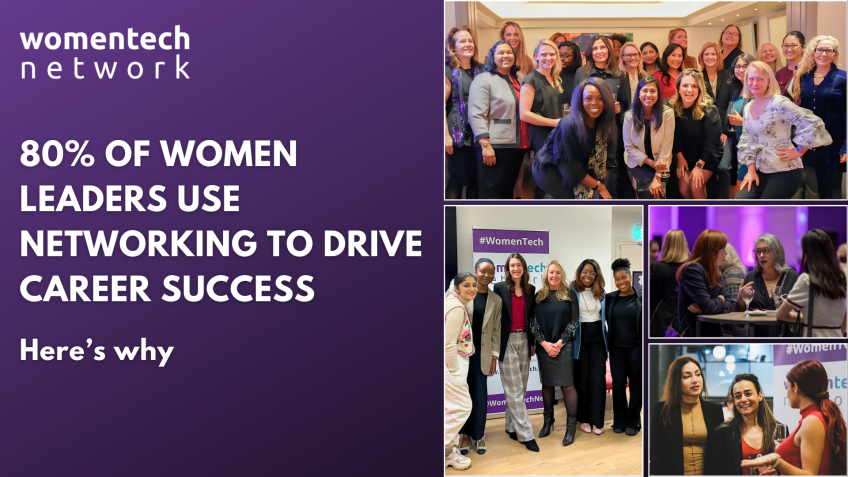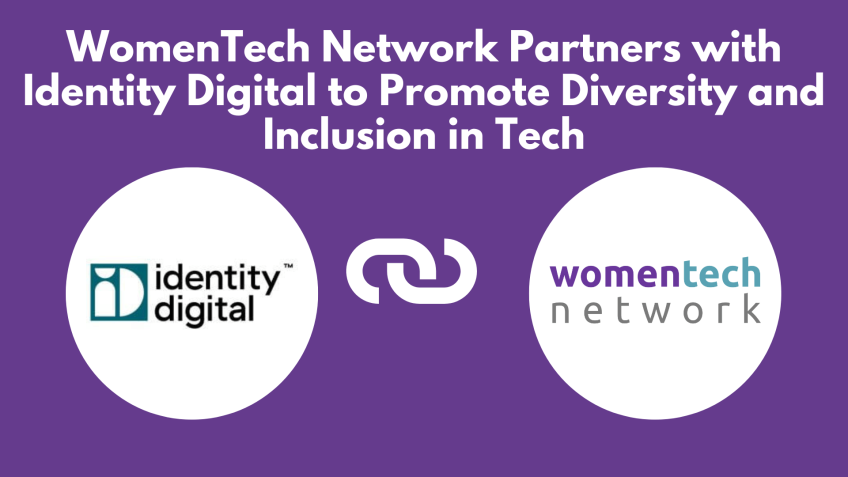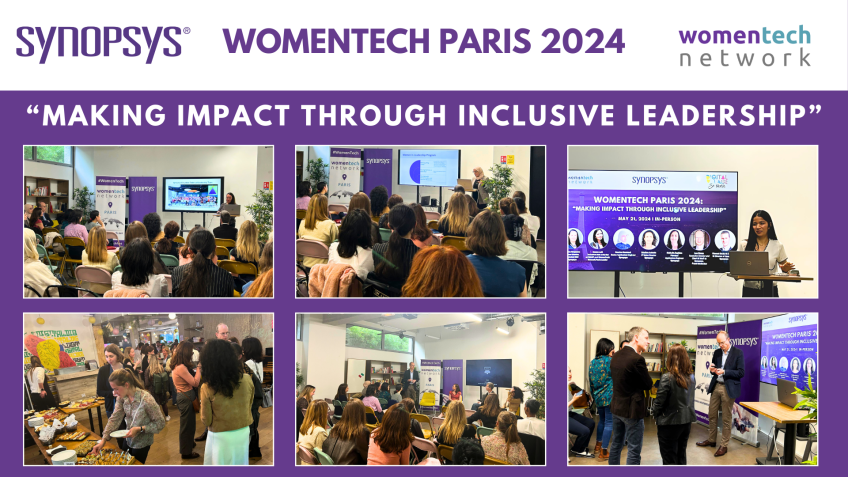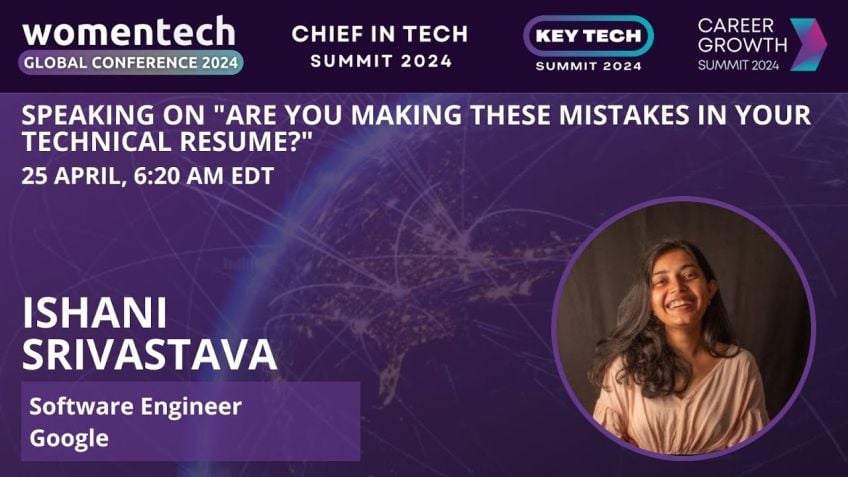Melissa Swisher - Creating Your Path to Leadership: Lessons from a Technology Leader’s Journey
Embrace the Journey: My Personal Experiences as a Technology Leader
I am excited to share my journey into technology leadership, especially sharing lessons learned and tips for aspiring leaders in the tech world. My path wasn’t always easy, but the failures and successes along the way have equipped me with lessons that I am thrilled to share with you today.
Beginning of My Career
My professional journey began at ADP, a popular payroll company. Here, as a small business district manager responsible for accounts of size 1 to 50, I mastered foundational sales skills through foot canvassing, canvassing pizza places door to door, and discussing their payroll needs. Eight years at ADP equipped me with valuable insights into climbing up the ranks, which set the stage for my tech career.
Transition into the Tech World
With the tech world exploding, I leaped at the opportunity to join a start-up, Success Factors, an experience that showed me the stark reality of working in a dynamic, formative environment. Success factors were an incredibly humbling experience, it knocked me down but then lifted me up. Despite the challenges, it was a transformative experience that nurtured my passion for tech.
Highlighting My Key Lessons
Fail forward and fail often
Everyone experiences setbacks. You've got to figure out a way around the problem and learn from your mistakes. These mistakes were not roadblocks but stepping stones to success. It’s crucial to experience failure on the path to success.
Show up consistently
Regardless of the culture of a company, you need to show up for yourself, your teammates, and your venture. Canoe together in synchrony, underscoring the idea of unity, collaboration, and perseverance.
Embrace lifelong learning
In the realm of technology, continuous learning is paramount. Evolve, adapt and continuously strive for excellence, pursue things that will help you to grow personally and professionally.
Deal with adversity smoothly
Haters are always going to hate. Misogynistic talks, implications, or any kind of adversity should not affect individuals who know their worth and believe in their journey. Ignore the detractors, focus on your path and let your work speak for itself.
Be comfortable with the uncomfortable
When you get too comfortable, complacency kicks in. To avoid this, you must always strive to be curious, be comfortable with being uncomfortable and keep pushing the limits.
The Importance of Mentorship and Paying it Forward
In this journey, mentoring from diverse, experienced individuals played a significant role in shaping my career trajectory. Now in the next stage of my journey, I am inspired to pay it forward, by mentoring and supporting others in achieving their goals. Remember, everything is achievable and success follows hard work.
Thank you for sharing this time with me. I hope my experiences inspire you on your journey into tech leadership.
Video Transcription
Well, thanks everybody. Um I appreciate the time today. I'm really excited to be spending some time with you guys and um in, in going through this, this this opportunity and presentation with you guys today. So I think that we've got 20 minutes together.And so obviously, as there's questions, um you know, feel free to stop me. I'm, I'm certainly honored to be pre uh presenting today and really excited to um to do this. So why don't we go ahead and um get started and um I will go ahead and advance my screen. Um And let's see if I can figure out one second full screen. That's what I want. Ok. So, well, thank you again um for the time today and uh I'm thrilled to be talking to you guys. So, really the, the topic I had to talk about today was my own journey, my own experiences from a point of view of um, a technology leader and um the path that I've taken to get here. So hopefully, what we can, we can, we can talk through today and what I can share with you guys will be helpful.
Um in terms of um just some of the things that we've the lessons learned along the way and I apologize, I can't seem to be getting out of the screen mode, so I'm just gonna go ahead and proceed as is. So, um let's see, uh it's frozen, but I am frozen. So, um I think it finally unfroze, let me go to the um and, and let's try one more time. Ok, so what I wanted to talk about really was that journey, right? And what led me down the path in terms of being that executive and, and how I got here, you know, oftentimes I'm asked in, in terms of this makes me starting to feel a little bit older in my career. But what was the journey you had to get here and, and what were the key pieces and integral le lessons learned along the way? And so I've, I've done some college, you know, um um classes and served as an adjunct professor in the past. But really what I wanted to take you guys through is in terms of my own journey, some of the things and tips and tactics along the way because it's a, it's certainly an interesting opportunity and an interesting opportunity for women and especially when we think about technology and how do you get there?
So I, you know, many, many moons ago, I uh went to a college in Virginia called James Madison, which was fantastic. Um I had no idea whatsoever what I was going to do post that, that time there. And remember walking down and probably these things don't even exist anymore, but these job fairs. Right. And trying to figure out, well, what am I gonna do? I know I needed a job. I knew I wanted to have an opportunity to, to make money. And, um, and so somehow landed, um, right in front of a ad P which is a, a payroll company, which I'm sure a lot of folks are familiar with on the phone. So, um, you know, I got my first shot to become a small business district manager. Um basically covering a territory at the time they did territories based on zip code. So think about, you know, I had four zip codes. I focused on accounts that were size 1 to 50 a big part of my job was foot canvassing and that foot canvassing in, um was things like going door to door to pizza places and, and asking them if they would be, you know, talking to them about payroll and, and seeing if they would bite.
So, uh really good foundation level in terms of, of sales, it was AAA great training ground, you know, um I learned so many different lessons there along the way and had spent about eight years there. Um, you know, going up the ranks from a rep in the small business group to major accounts and then managing and then managing multiple regions. Um And so it was a really good foundational level um opportunity for me. Um I, I was really thankful for my eight years there, but I had a real desire um the tech world was starting to explode and really thought it would be a good opportunity to kind of spread my wings and, and join a start up. And so at the time, I had an opportunity to join a really small company called Success Factors, which ultimately got acquired by um SAP and you know, um it was a whole new world, right? Everything when you were in a public environment, there's so many things nicely laid out for you. You do Xy and Z, you kind of get to your next goal, your next tier, right in the sales world, it was all about making sure that you, you overperformed it in your numbers and those were really the path towards leadership.
But the place I think it really lacked was giving you those skills that um would really think about a holistic view and where I thought a start up could be so beneficial is being exposed to so many different places. But man was I spoiled because by the time I got to Success Factors, it was probably one of those most humbling experiences of my career um going into an environment where a lot of things weren't figured out, having to create a lot of your own powerpoints, your materials, uh cold call, um you know, configuring demos, it was a uh drink by the fire hose environment.
I loved it, but it was hard and it knocked me on my butt. You know, it was um from having a place of where I thought I had achieved optimal success. Having all these people report to me, all these leaders report to me and then getting to that opportunity of success, success factors and, and really realizing how much more there was to really learn. So that journey took me through rep manager, you know, was lucky enough to have um a lot of success there. And then an RVP stayed there through the point in time of the company going IP O but left before the acquisition of SAP. As I had another opportunity to go work for a very small company called Castlight, which was in the benefits transparency space. So had joined some of my former colleagues from success factors over at Castlight and had opportunities as both an RVP and an A VP um managing pretty much the teams that held all the largest accounts within the organization and the firm. Um Within three years, we took the company IP O. it was a really one of those and again, knocked me on my butt experiences.
So going from a world of, you know, OK, I got my handle on this talent management piece, but now I have to learn benefits and there were these brilliant academics and Ivy League folks there and it was a super intimidating experience and, and, and having a little bit of a failure to get to the place of where getting back to success um again, continues to be the theme that I saw through my, my own career.
Um then having that opportunity finally, which is what I was working towards was to become a VP, a global VP of sales and marketing. And um had an opportunity to go run a AAA company with a group of about 250 global opportunity. Really the whole idea behind that was to get the business acquired, it was a services business. But my ultimate career goal really for me at the time was to go start a start up. And so about four years ago, I was lucky enough to be a part of uh starting that dream with um somebody I've worked with for the last 15 years and uh take on a role as the Chief Revenue officer. And so that, that uh humbling thing continues to be one of those things you see throughout the career. And for those who have been through the journey of um starting a company with zero employees, zero customers, zero resources and just a small amount of uh seed round. It is a, it is a bear and it is a climb. So um so what is the journey? Right? And as I was a young naive, you know, 22 year old with a lot less gray hair, you know, I had these huge expectations that, you know, after a very little amount of success in my first couple of years at AD P that it was gonna be a killer ride.
Right. And I thought it was gonna go like the picture on the left and the reality is, I think more often times than not, I felt like the picture on the right. Right. So, so what are those lessons learned? Right. So as we think about, you know, what are those things that, you know, I've learned along the way, you know, as I get asked a lot in terms of those mentor roles, I've called for a number of women um uh in other organizations and not limited to women, but other, other places, there's some key components that I think have been really helpful and if they're helpful to fuel you or arm you with some of those details and data, um you know, I, I I'm hopeful that there's something you'll, you'll grab from this that um will be useful from you for you moving forward.
So the biggest lesson I learned more than more than once and I can is that you gotta fail forward, right? And you gotta fail often, right? So the reality is everybody experiences setbacks, right? There's places it's not gonna work, right? And you're gonna try to figure out a way to make it work and the way that you thought it was gonna work, it's not right. So you gotta not necessarily give up. And that's why I love the idea. And if anybody has seen The Last Dance with Michael Jordan, it's a great documentary. But you really got to figure out a way that how are you gonna figure out the problem? OK, the solution you thought would work in theory doesn't. So now you gotta go figure it out and you can't rely on somebody else to figure it out. You gotta go for it, right? And you, you, you're gonna make mistakes and mistakes are totally OK, because the reality is until you experience those, you're not going to get to a place of where you're gonna get to that success point where, where it takes you to the place of war, all those lessons learned along the way helps to create that level of success.
And so the second thing for me was is that, is, is really important, right? And I've, uh throughout the, the, my 20 plus year career, you know, I've been a part of companies that have had really bad cultures. I won't name them by names. And I've had experiences with cultures that were awesome. And the thing that you gotta constantly remember is, you know, regardless of that, you gotta show up, right? And so what I mean by that is you show up every day for yourself, right? And for what it is you're trying to achieve, you show up for your teammates and the other colleagues that you have throughout the course of the company and then you show up for the company, right? Is this a mission? Is this, is this something you're passionate about? Do you see what this can do to change the world? Right? And that might sound a little hokey, but that's the reality. You have to believe that. And then when you do get to that place, it's gonna be hard, but you gotta work together, right? It's the canoe and everybody being in that canoe together and making that commitment to be there because others are gonna pick you up when you fall and you need to be able to do the same thing for others. So show up and along that vein, right? Probably where I would spend more of my time in terms of this, this lessons learned is this to me is one of the most important things, right? So, you know, how do you get to that trajectory journey?
And so there's a lot of things that, you know, you look at in terms of the peeps that you surround yourself with. Um For me, the way I would bucket it is you obviously have your external network, right? Those include all your people, like your friends, your family, your kids, you know, those are your go tos you ultimately, after spending any sort of period of time internally, right? With the people you work with, those become your internal go tos, but it's usually a trusted circle, right?
And folks that you can trust and rely upon for me, you know, those have been really key and some of the relationships I've met at um success factors, which I would say was probably one of the best cultures. I've worked with a lot of my best friends to this day came from that organization. And, you know, a big thing for me was finding mentors and um mentors are something that you can't necessarily assign but evolve over time. And then for me, you know, a lot of people have this idea of a work spouse or work, work partner. And absolutely, that's been core to my uh success and somebody I've been able to lean on along the way. But, you know, going back to that experience of success factors, it was a big change for me, right? It was a big change for me, having an admin and having, you know, all these people. And I was like, oh, I'm so great and having all these opportunities and expense accounts and, and then being thrust into this world of, wow, this is like a paper hanger and, and budget opportunity and also kind of a bit of an attitude in terms of an edge. And like I got this, I know it and I was lucky enough to be paired up with uh this new hire buddy. Who was, who was my mentor to this day, a gentleman named Greg Nash, and he was assigned to me as my new hire buddy.
So he called me on my second day and said, hey, I'm your new hire buddy. And then I didn't hear from him from four months. So I always like to joke with him um about the fact that I was left, left on that island. But the reality is once I got back connected to him, I had already had that fall from grace, so to speak, meaning that it was a lot harder than I thought it would be. And Greg knew that that was gonna happen. And so I spent some time with him and said, look, I, I don't know how I'm not being successful, right? I, I don't know why this isn't working for me and it's really making me mad and frustrated. And man, this is so annoying and he took a look at some of the stuff I was doing. He's like, this sucks. I was like, thank you. Um But the reality is, and he made me go try again. And I spent a lot of time with him. I learned, he told me things I needed to do, like learn the product. You will become so much more proficient in terms of your ability to execute in the field. Um learn and understand the why and why is this important to your buyer? And it changed everything. And so after a pretty rocky start, what wound up happening is then, you know, getting to a place of back to the number one, rep at the time, which was a humbling experience in a better way.
Um I'll never forget that, that, that company all hands and, and the first person I sought out, um, after it called out was him and gave him the biggest hug ever. Um Just because I knew that the life, the lessons he imparted on me, um I would take and carry forward with me forever and try to make sure to, to do that moving forward for others, um who go through that same struggle. So, you know, one of the things that constantly happens as a woman, um or anybody really is that there's, there's idiots everywhere, right? I'm from New Jersey. I'm definitely pretty blunt. But, you know, the reality is there have been some men's clubs along the way, right? There's adversity for all sorts of people they face in every type of walk of life. So it's not limited, right? But there was a lot of times that I've been in positions where I was more successful. So could not, the business couldn't afford to promote me, right? Which really sucks. Or I was in positions where there was a lot of misogynistic talk and um implications as to why maybe somebody a woman would, might be successful versus others. You gotta ignore that. And you've gotta be able to say they don't know what they're doing. That that's coming from a place of where they're insecure and, and it's a topic that's important to talk about. Right. Because these things do impact there is, you know, there are these groups and there's these, you know, I don't know how to play golf.
I don't want to know how to play golf. But what I do want to do is be the best at what I can do in terms of my job. And the one thing I know I needed to do was not to get impacted or affected by people who really at the end of the day should not have any bearing um in terms of my own success. Um The thing for me that was really also really important is this idea of life, learn, lifelong learning. Um You know, for me coming to Socrates again, is one of those experience that knocks my me on my butt and really has been an opportunity to get involved into all facets of the business. If you had told me as a chief revenue officer, I would have ever been learning how to write product specs or if I had been writing implementation decks or anything of that nature, I would have said you're crazy. But the reality is it's made me better in so many ways in a way that I never thought I could appreciate. And so this idea of embracing things that you can always get better, right?
You could always get better at a craft, you could get yourself and pursue things that are gonna help you be successful. And being curious is a really good thing. A lot of great, great learnings come from that. And when you experience success, right? This is why for celebrities and this is not me. So I don't mean it that way. But the idea is is that there's always going to be naysayers, right? When you succeed, there'll be people saying they were successful because of this and it's usually a derogatory statement or as a woman, maybe you've experienced, oh, well, you know, she's attractive, she's sleeping with this person or, you know, all sorts of things and these are crazy things and it's ok to talk about because it doesn't make it fact, right?
You know why you're successful and you can't get bogged down by why people will tear you down and the way that you react to it or the lack of reaction and just prove it is really what starts to matter. You don't. So haters are always gonna hate. It's the way that you're gonna deal with that, that's gonna make it a make or break for you as a, as a, as a leader, as you grow your career. And if my team was on the phone today, they might be able to um repeat this verbatim, which is to be comfortable with the uncomfortable. The reason I say that and I love that idea is that anytime you're too comfortable on anything, you start to almost get to a place of complacency. And the idea is, is that you have to be curious and you've got to go for what you're looking for, you know, ask for what it is, right? Why, how do I get to point A to, you know, from point A to point Z, you know, and you gotta ask often you need to understand what are the criteria. You should ask many people across the company and say, hey, we were working together on something.
What do you think? Right. It's amazing what you'll find when you ask and if you go at it in a kind way, right? It's amazing what you'll see. So that's why it's so critical to continue to have great relationships throughout the company and with your customers and your peers, right? Because you gotta continue to do things that will make you insecure and a little scared, right? And I think that's when you start to really start to get out of that comfort zone, be comfortable with trying new things that's gonna ultimately separate you from the pack and get you to that places of where you wanna be. And so I know that we're close to time, but the way I would um close this out today is really the next step of my journey is I've been so lucky to be um to have mentors um to have somebody who's been a writer or die partner for me in, in terms of every part of the business for the last 15 years and to work with so many great folks along the way.
And now I'm at the point in my career where I'm hopeful to just continue to pay it forward and to mentor and to help other people achieve their goals. And the thing is you have to start that always and often. And I really hope what you take away from this is, is that everything is achievable. Um The only limit a lot of times for people is themselves. And so just continue to work hard at what you do and the success will follow. Thank you so much for the time today. Just a time. So really appreciate the uh the opportunity.





